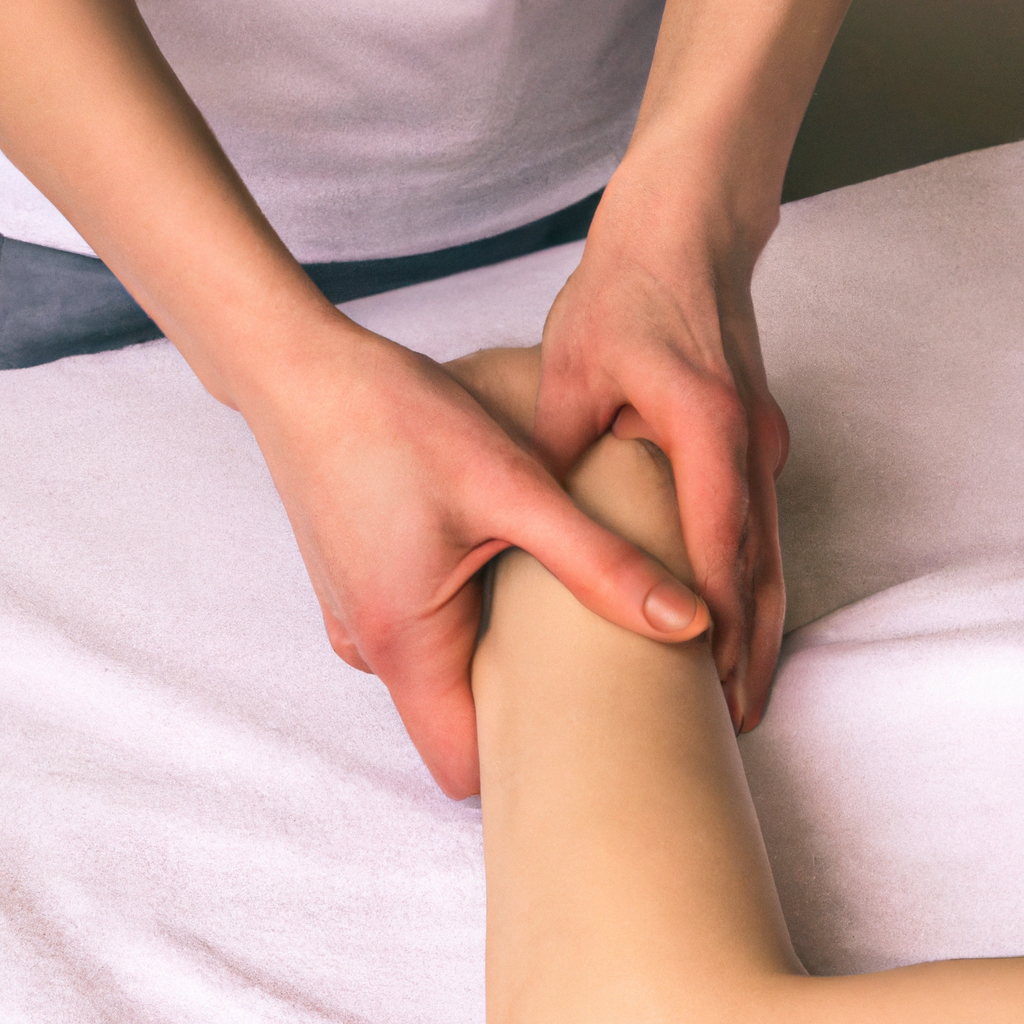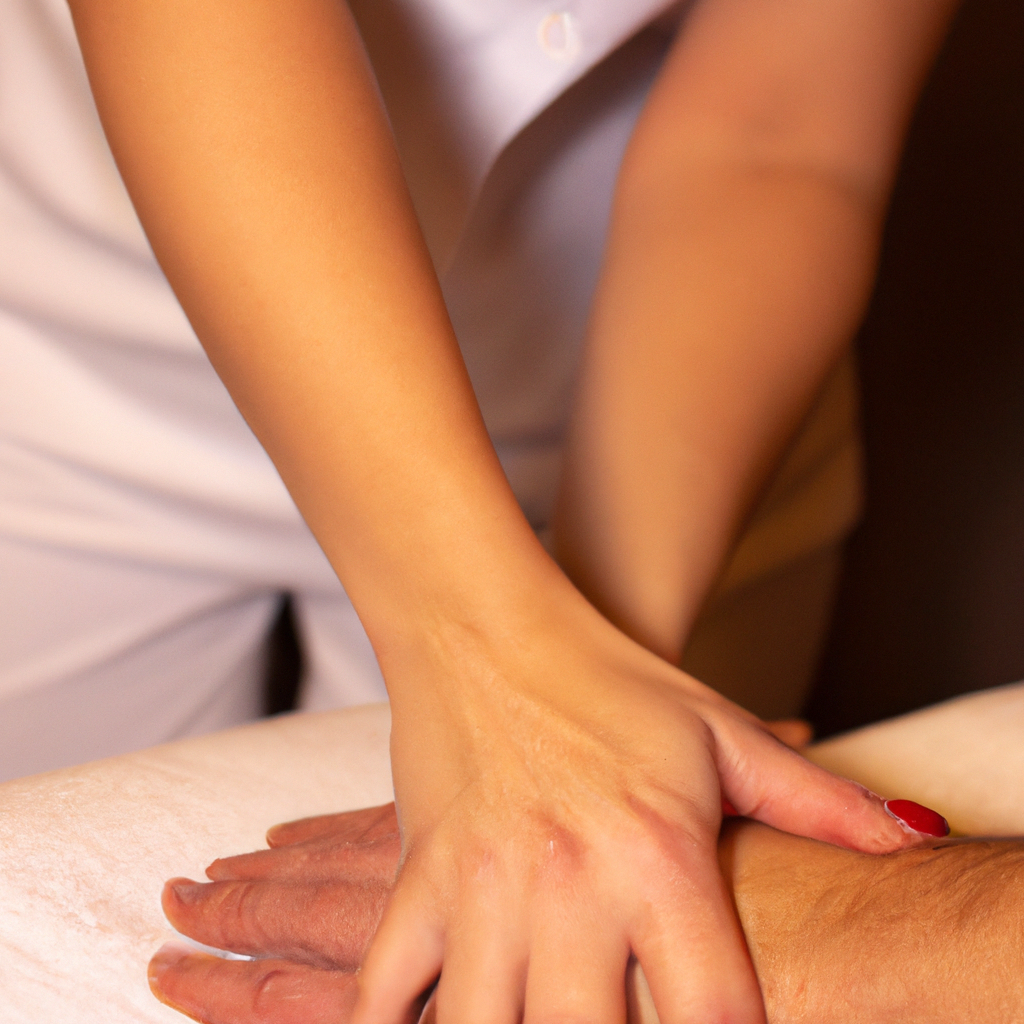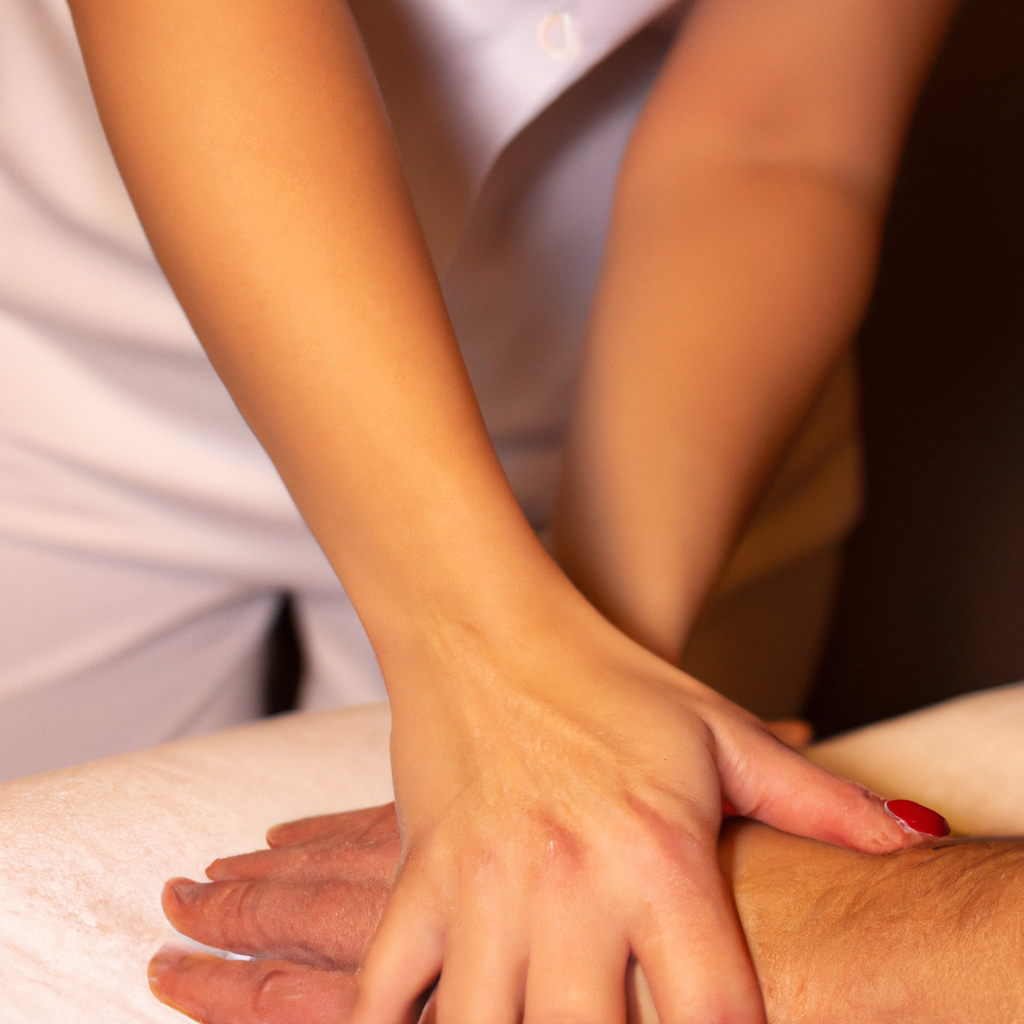So you’ve just had a rejuvenating massage session and now you find yourself in that all-too-familiar dilemma – do you tip your massage therapist? It’s a question that many of us have pondered over, unsure of the proper etiquette. In this article, we’ll explore the ins and outs of tipping massage therapists, discussing different perspectives and providing you with some helpful guidance to navigate this gray area. Whether you’re a regular spa-goer or a first-time visitor, let’s unravel the mystery surrounding tipping massage therapists together.

Why You Should Consider Tipping Your Massage Therapist
Appreciating the Skill and Effort
When you receive a massage, you are not simply receiving a service; you are benefiting from the skill and effort of a trained professional. Massage therapists undergo extensive training to understand the human body, its musculoskeletal system, and how to alleviate tension and promote relaxation. By tipping your massage therapist, you show appreciation for the expertise and effort they put into their work.
Encouraging Exceptional Service
Tipping your massage therapist can be a great way to encourage exceptional service. When therapists receive a tip, they understand that their efforts have been recognized and appreciated. This recognition motivates them to continue providing outstanding service, ensuring that you receive the best possible experience during each massage session.
Maintaining a Long-Term Relationship
If you have found a massage therapist who consistently provides excellent service and meets your needs, tipping can help maintain a long-term relationship. Showing your gratitude through a tip fosters a positive connection between you and the therapist. It encourages them to prioritize your needs and ensures that you receive the same level of care and attention in future sessions.
Factors to Consider When Deciding to Tip
Quality of Service
The quality of service you receive can greatly influence your decision on whether to tip your massage therapist. If the therapist goes above and beyond to address your specific concerns, modifies the massage techniques to suit your preferences, or provides additional benefits such as aromatherapy or hot stones, tipping might be appropriate to acknowledge their exceptional service.
Frequency of Visits
If you visit a massage therapist regularly, it may be a good idea to consider tipping as a way of showing your appreciation for their consistent efforts. Regular clients build a rapport with their therapists, and a tip can strengthen that connection by recognizing the therapist’s dedication to your well-being.
Length of Session
If your massage session lasts longer than the standard duration, tipping may be a thoughtful gesture to acknowledge the therapist’s extra time and effort. Longer sessions often require more physical exertion from the therapist, and a tip can show your gratitude for their commitment to ensuring you receive the full benefits of the extended session.
Cost of the Massage
The cost of the massage itself should not be the sole determining factor in whether to tip your therapist. However, if you receive a highly discounted or promotional rate, tipping based on the original price can be a way to show appreciation for the value you received.
Personal Budget
While tipping is a customary practice, it should always be based on your personal budget and financial circumstances. Tipping should never cause financial strain or hardship. If you are unable to tip, remember that expressing gratitude through other means, such as a heartfelt thank you, is also meaningful to the therapist.
Recommended Tipping Etiquette
General Guidelines
In most situations, a tip of 15-20% of the total cost of the massage is considered customary in the United States. However, tipping practices may vary depending on the country or culture you are in. It is essential to research the tipping customs of the specific location to ensure you adhere to local norms.
Percentage or Flat Rate?
Deciding between a percentage or flat rate tip can depend on personal preferences and the circumstances. Some people prefer to tip a percentage of the total cost to reflect the level of service received. Others prefer to tip a flat rate, especially if the cost of the massage is already high. Ultimately, the choice between percentage or flat rate tipping is up to you.
Cash or Credit?
When it comes to tipping your massage therapist, it is generally preferred to provide a cash tip. Cash is easily accessible and allows therapists to receive their gratuity immediately. However, if you do not have cash available, tipping on your credit card is also acceptable. In this case, the tip is usually added to the payment during the checkout process.
Tipping for Additional Services
If your massage therapist provides additional services, such as cupping therapy or aromatherapy, it is customary to tip for those services separately. The additional tip can be a percentage or flat rate, depending on the practice you usually follow.
Group Tipping
In situations where you receive a couples’ massage or have multiple therapists working together, it is important to remember that tipping should be done individually. Each therapist should receive a separate tip based on their individual service and expertise.
Alternatives to Monetary Tips
Writing a Positive Review
One way to show your appreciation for your massage therapist’s service is by writing a positive review. Reviews are valuable to therapists as they help attract new clients and build their reputation. Taking the time to leave a positive review can have a lasting impact on their career and serve as a testament to their skill and professionalism.
Referring Friends and Family
If you have had an exceptional experience with a massage therapist, consider referring them to your friends and family. Word-of-mouth referrals are a powerful way to support the therapist and help them grow their client base. By referring others, you not only show your appreciation but also contribute to the therapist’s success.
Bringing Small Tokens of Appreciation
For those who cannot or prefer not to provide a monetary tip, bringing small tokens of appreciation can be a thoughtful gesture. This could include handwritten notes, thank you cards, or small gifts such as scented candles or personalized massage accessories. These gestures show that you value the therapist’s work and are grateful for their efforts.

Special Considerations for Different Massage Settings
Spa or Wellness Center
In a spa or wellness center setting, tipping your massage therapist is typically expected. The gratuity is often included as a separate line item on the final bill. If the tip is not included, it is customary to provide a cash tip directly to the therapist or add it to your credit card payment.
Hotel or Resort
When receiving a massage at a hotel or resort, tipping practices may vary. Some establishments include the tip as part of the overall cost, while others leave it to the guest’s discretion. It is best to inquire about the tipping policy beforehand to ensure you adhere to their guidelines.
Medical or Rehabilitation Facility
In a medical or rehabilitation facility, tipping may not be customary or allowed due to the professional nature of the setting. In these cases, expressing gratitude through a kind gesture or a thank you note is a more appropriate way to show appreciation for the therapist’s work.
Mobile Massage Services
For mobile massage services, tipping is generally expected and follows the same guidelines as tipping in a spa or wellness center. The therapist may have additional expenses associated with traveling to your location, so a generous tip is especially appreciated.
Independent Massage Therapists
When receiving a massage from an independent therapist who operates out of their own practice, tipping practices may vary. Some independent therapists may have a no-tipping policy, while others appreciate and expect tips. It is best to ask about their tipping policy in advance or follow the general tipping guidelines.
How to Handle Unsatisfactory Experiences
Communication with the Therapist
If you have an unsatisfactory experience with a massage therapist, it is essential to communicate your concerns directly to them. Polite and constructive feedback allows the therapist to address any issues and make necessary adjustments to improve your experience.
Reaching Out to Management
If your concerns are not adequately addressed by the therapist, reaching out to the management or owner of the establishment can be a next step. This ensures that your feedback is heard and can contribute to the overall improvement of the facility and the quality of service provided.
Providing Constructive Feedback
When providing feedback, it is crucial to focus on constructive criticism rather than personal attacks. Clearly communicate the issues you experienced and suggest potential solutions or improvements. This approach helps therapists and establishments understand and address your concerns more effectively.
Seeking Alternatives
If your experience with a specific massage therapist or establishment continues to be unsatisfactory despite your efforts to address the issues, seeking alternatives may be necessary. There are many skilled therapists and reputable establishments available, and finding one that matches your preferences and needs is important for a positive and enjoyable massage experience.
Cultural Differences and Tipping Norms
Tipping Practices in Different Countries
Tipping norms and practices vary across different countries and cultures. Some countries, such as the United States, have a strong tipping culture, while others may have different customs or no tipping expectations at all. When traveling abroad, it is essential to research the tipping practices of the specific destination to ensure you show respect for the local customs.
Understanding Cultural Sensitivities
In addition to tipping norms, it is crucial to be mindful of cultural sensitivities when receiving a massage in a different country. Different cultures have varying expectations and boundaries when it comes to personal space, modesty, and touch. Respecting and adhering to the cultural norms ensures a harmonious and respectful experience for both you and the massage therapist.
Debunking Common Tipping Myths
Myth: Tipping is Always Required
Contrary to popular belief, tipping is not always required. While it is a customary practice in many industries, including the massage industry, tipping should be based on the quality of service received and your personal discretion. However, it is essential to remember that tips can significantly impact a therapist’s income and financial stability.
Myth: The Massage Therapist Receives the Full Payment
Another common misconception is that massage therapists receive the full payment for their services. In reality, they often receive only a portion of the fees charged for the massage. Tipping can help supplement their income and support their livelihoods.
Myth: The Employer Covers the Tip
Some individuals mistakenly assume that the employer covers the tip for the massage therapist. While some establishments may have policies that allow for the pooling of tips or the distribution of a gratuity pool among staff, it is not guaranteed. Tipping directly to the therapist ensures that they receive the recognition and reward for their individual efforts.
Myth: Tipping at the End of the Session is Mandatory
While it is customary to provide the tip at the end of the massage session, it is not mandatory. If you forget to tip in the moment, you can always contact the establishment and inquire about alternative ways to express your gratitude.
The Impact of Tipping on the Massage Industry
Financial Stability for Therapists
Tipping plays a significant role in providing financial stability for massage therapists. Since their income can be inconsistent due to factors such as seasonality or cancellations, tips can help bridge the gap and support their livelihoods. By tipping your massage therapist, you contribute to their financial well-being.
Recognition of their Professionalism
Tipping is a tangible way to recognize and appreciate the professionalism of massage therapists. It acknowledges their years of training, ongoing education, and commitment to enhancing your well-being. Your gratuity demonstrates that their skills and abilities are valuable and deserving of reward.
Motivation for Continuous Improvement
When massage therapists receive tips for exceptional service, it motivates them to continue improving their skills and techniques. Knowing that their efforts are recognized and appreciated encourages them to invest in further education, explore new modalities, and continuously strive to enhance their clients’ experience.
Conclusion
Tipping your massage therapist is a wonderful way to express gratitude for their expertise and dedication to your well-being. By tipping, you encourage exceptional service, maintain a long-term relationship, and support the financial stability of these hardworking professionals. Remember to consider factors such as the quality of service, frequency of visits, length of sessions, cost of the massage, and your personal budget when deciding on the appropriate amount to tip. If monetary tipping is not feasible, alternative gestures such as writing a positive review, referring friends and family, or bringing small tokens of appreciation can also show your gratitude. Ultimately, tipping is a meaningful way to recognize and support the massage industry while ensuring you receive the best possible experience during your massage sessions.
